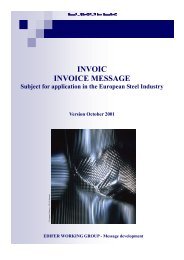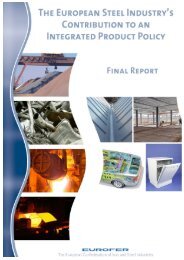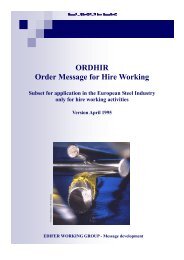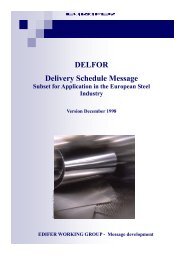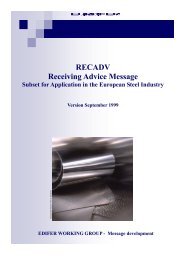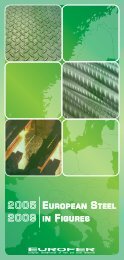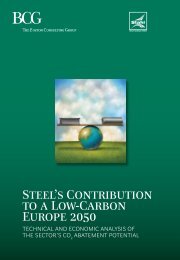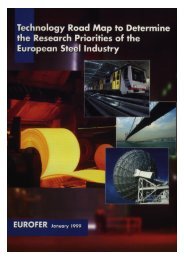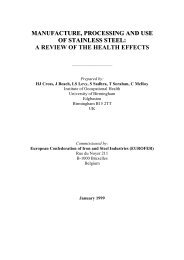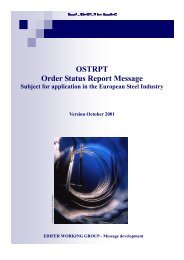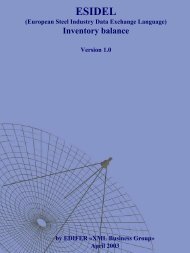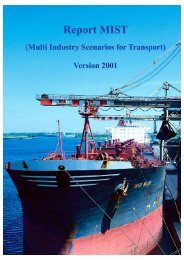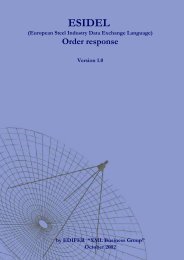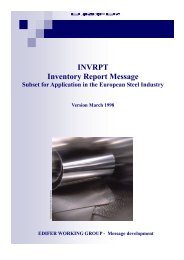Imports - Eurofer
Imports - Eurofer
Imports - Eurofer
Create successful ePaper yourself
Turn your PDF publications into a flip-book with our unique Google optimized e-Paper software.
T r a d e P o l i c y<br />
Further consultations with the US were held on their failure to terminate AD/CVD cases<br />
in “sunset reviews” when the amounts of dumping and subsidy are below the current de<br />
minimis level. The absence of results in these consultations might lead to new requests for<br />
WTO panels. Moreover, the way US Department of Commerce (DOC) “sunset” regulations<br />
lead to a near systematic finding of continuation of dumping or continuation of the benefit<br />
of subsidies is under close scrutiny. This seems contrary to the intent of the “sunset clause”<br />
and, indeed, discourages companies in Europe and around the world from entering into<br />
investigations and incurring the significant expenses associated with them.<br />
In August 2000, the Appellate Body of the WTO Dispute Settlement Body (DSB) confirmed<br />
that the US 1916 Anti-Dumping Act violates Article VI of the GATT 1994 and the<br />
Anti-Dumping Agreement. Accordingly, the DSB requested the United States to bring<br />
the 1916 Act into conformity with its international obligations. However, the US Government<br />
has not yet taken steps to repeal this Act.<br />
In May 2000, the Appellate Body ruled that countervailing duties imposed by the DOC on<br />
exports of lead and bismuth steel from the UK were in breach of the WTO Subsidies<br />
Agreement because the sale of the company in question at market price suppressed the benefit<br />
of pre-privatisation subsidies. Following that decision, the DOC terminated the lead and<br />
bismuth case and reimbursed to the company the duties that it had paid. However, the US<br />
also took the view that the DSB ruling had no impact on 14 other countervailing duty orders<br />
against privatised EU companies. Consultations held in November 2000 on these 14 cases<br />
led to no result; and now the DOC has replaced the “change of ownership” methodology,<br />
condemned by the WTO, with another one that appears to be equally contrary to the WTO<br />
and even more detrimental to the respondents’ interests.<br />
EUROFER remains convinced that present trade defence instruments do not offer the means to<br />
deal effectively and appropriately with the problems the world steel market has been confronted<br />
with since 1998. Accordingly, EUROFER remains committed to fostering approaches that<br />
would make it possible to better address structural problems within the world steel industry, and<br />
to design measures providing for consultations to help avoid dangerous trade developments<br />
and the occurrence of injury.<br />
25<br />
E U R O F E R 2 0 0 0



